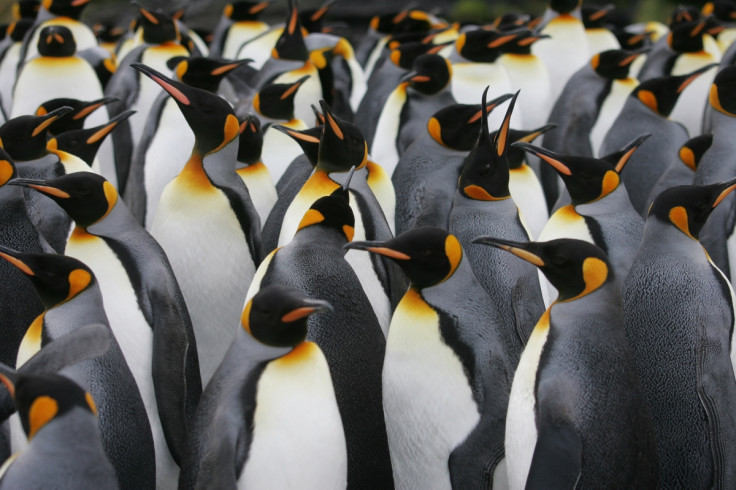Fat penguins fall over more than skinnier penguins and are easier for predators to catch

Fat penguins find it harder to walk than skinnier penguins and this makes them easier targets for predators, researchers have found. The study showed penguins that have put on weight before a long fast are "less stable walkers" than lighter penguins who have just fasted.
The research, published in PLOS One, was led by Astrid Wilener. The team caught 10 male king penguins that weighed more than 12kg and kept them on a fast for 14 days, testing how they walked on a treadmill. King penguins fast for long periods during their mating cycle – it is especially important for them to put on weight before their fast while taking care of their eggs.
Testing how the penguins walked on a treadmill proved more difficult than expected as some of the animals learned how to trick the study. Wilener told The Guardian: "Sometimes the penguins were lazy and 'water-skied' on the treadmill by leaning their back on the back wall of the treadmill. That is obviously not good for the data collection."
Though the study showed there was no difference between the body acceleration or the stride frequency when the penguins were heavier, there was "substantially less variability in both leaning angle and the leaning amplitude of the body when the birds were slimmer. There was also some evidence that skinnier penguins have less of a waddle. Being too fat makes them less stable and thus easily spotted and eaten by predators," Wilener said.
"The weight gain is an adaptive mechanism for them to survive their fast while reproducing and taking care of the egg," she told The Guardian. "But it is a trade-off between putting on weight to fast longer, in case there is a delay in finding a penguin partner to mate with, and still being able to walk, because if they can't walk steady, they fall and will be spotted and eaten alive by predators."
King penguins are the second largest penguin species, growing up to 1m tall. They also have one of the longest breeding cycles, lasting around 14- to 16-months and producing a single baby penguin.
© Copyright IBTimes 2025. All rights reserved.






















